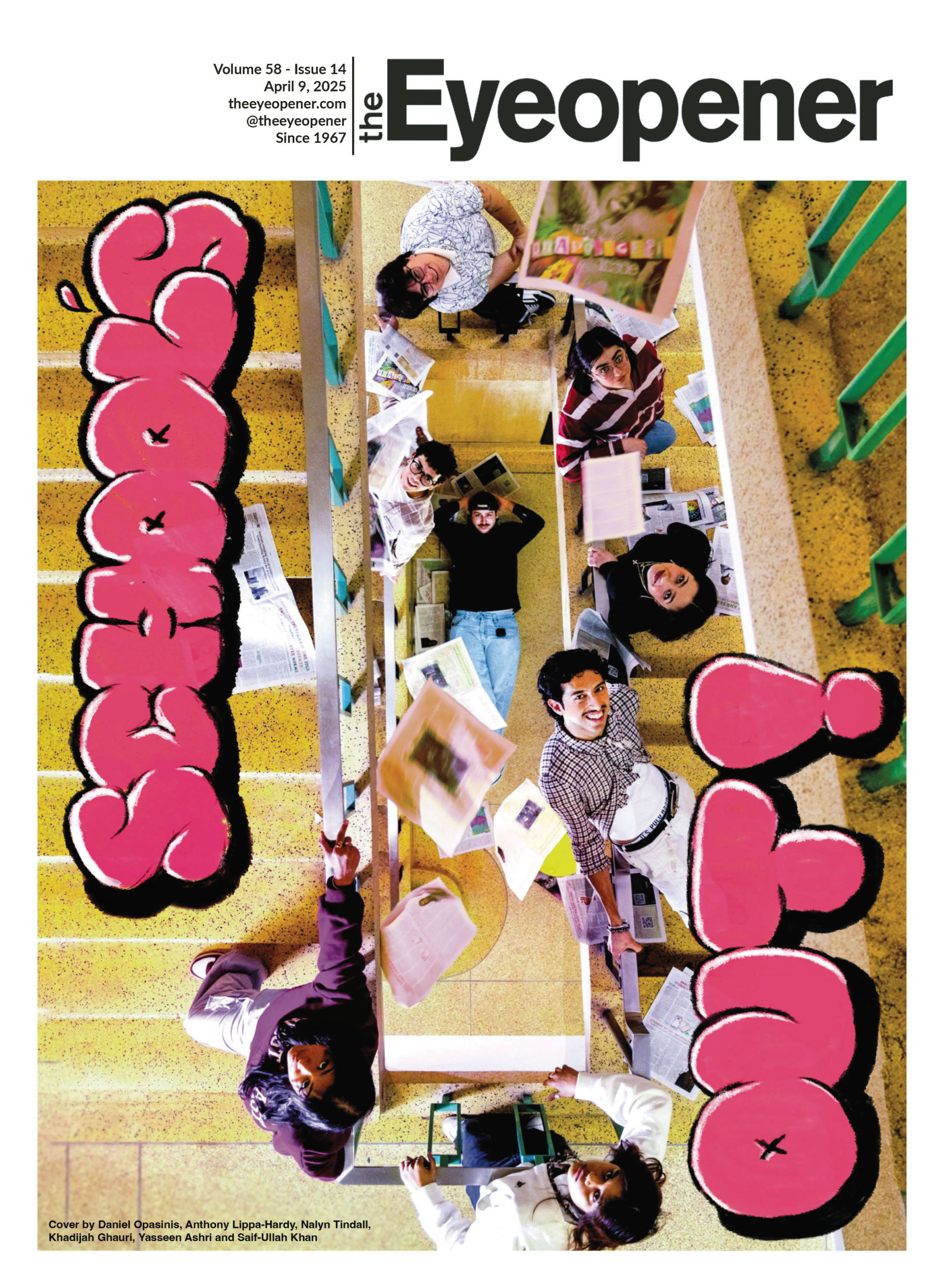By Jasmine Makar
The continuous presence of the ‘pink tax’ on drugstore shelves, paired with Toronto’s high cost of living, has some Toronto Metropolitan University (TMU) students with tight budgets moving towards alternatives, including men’s products and student partnerships offering free feminine hygiene items that enhance access and lower costs.
The term ‘pink tax’ refers to gender-based price discrimination on certain products that are marketed towards women, according to the Public Service Alliance of Canada.
Fourth-year business management student Angel Pham expressed her financial challenges as a student and the high cost of feminine hygiene products, as well as the toll it has taken on her overall disposable income.
Pham’s expenses, like many students, include textbooks, tuition, transit fees and additional living costs that tighten her budget. “So paying extra for everyday essentials, like razors, shampoos or even personal care items, it adds unnecessary financial stress,” said Pham.
With $100 set aside per month as her disposable income, Pham tries to save money by buying her personal items at Shoppers Drug Mart on Thursdays while with her parents, taking advantage of the 20 per cent discount they offer for seniors.
“It adds unnecessary financial stress”
Similar sentiments were shared by Celina Qumsieh, a fourth-year business management student, as she actively looks for product alternatives to save money.
“Sometimes I even end up buying the men’s version [of products], because, for some reason, the women’s versions aren’t even made as good…they’re more expensive for no reason,” said Qumsieh.
A study conducted by the New York City Department of Consumer Affairs found that personal care products marketed towards women cost more than men’s 56 per cent of the time. In contrast, only 13 per cent of the time, products marketed for men are more costly.
Additionally, Parsehub conducted research in 2021, reviewing thousands of products from Shoppers Drug Mart and Walmart Canada. The report revealed that women pay up to 60 per cent more in some categories, including deodorant, shampoo and conditioner per 100 grams of product.

Associate professor at the Ted Rogers School of Management (TRSM) Jenna Jacobson explained the ‘pink tax’ phenomenon and the marketing behind it that corporations use to justify the inflated price.
“Some of these products come with more feminine branding design and packaging and are marketed as premium or luxury items, even when there aren’t significant differences in functionality,” said Jacobson.
She also explained that with women having a significant purchasing power in the market, the obvious functionality of a product doesn’t always speak for itself, leading women to gravitate towards specific promises and claims.
The differences in products are also noticeable within female students as their awareness towards the topic grows. Second-year retail management student Natalia Sulek said, “As a retail student, I can tell you that those [marketing tactics] aren’t believable to me at all.”
Sulek believes that a simple understanding of the supply chain and retail strategies has made her more aware of the pink tax. This has allowed her to have a better eye for misleading branding that is used to rationalize the price tag on feminine hygiene products.
According to a study from the Kilts Center at Chicago Booth Marketing, more than 80 per cent of products are gender-targeted, appealing to a specific demographic for market gain.
Pham, an HR major and the executive vice president of Boost Her TMU—a female-run student group aiming to empower and educate women—further conveyed her frustration with the marketing of feminine hygiene products.
“Tell me what exactly are the ingredients that you’re putting into this product, where I have to pay more than a male product,” said Pham. “‘It’s ingredients, but is it really the ingredients? Because I know sometimes, most shampoos, they’re basically the same ingredient.”
Boost Her TMU also offered a period purse drive in February, aiming to collect menstrual hygiene products to promote access to these costly products, as mentioned in their Instagram post.
“Students are able to access these products at literally no cost”
Sulek believes that student societies are the best way to support female students and alleviate the financial stress these essential items cost them.
As a part of the Ted Rogers Students’ Society (TRSS), Sulek explained the efforts TRSS has made with its partnership with Joni, a sustainable period care brand. The partnership, which began in April 2024, provides free pads and tampons through dispensers all around the TRSM building.
“That’s been a really amazing partnership because students are able to access these products at literally no cost,” said Sulek.
Although the price of feminine hygiene products can be daunting for students’ budgets, Jacobson explained that the use of social media can help spread awareness about pink tax and the obvious price discrepancies between very comparable men’s and women’s hygiene items.
“You have consumers who are posting on TikTok and Instagram where they can compare men’s and women’s deodorant or razors or shampoo, showing that these are the same products but different prices…which raises consumer awareness of these practices,” she said.










Leave a Reply